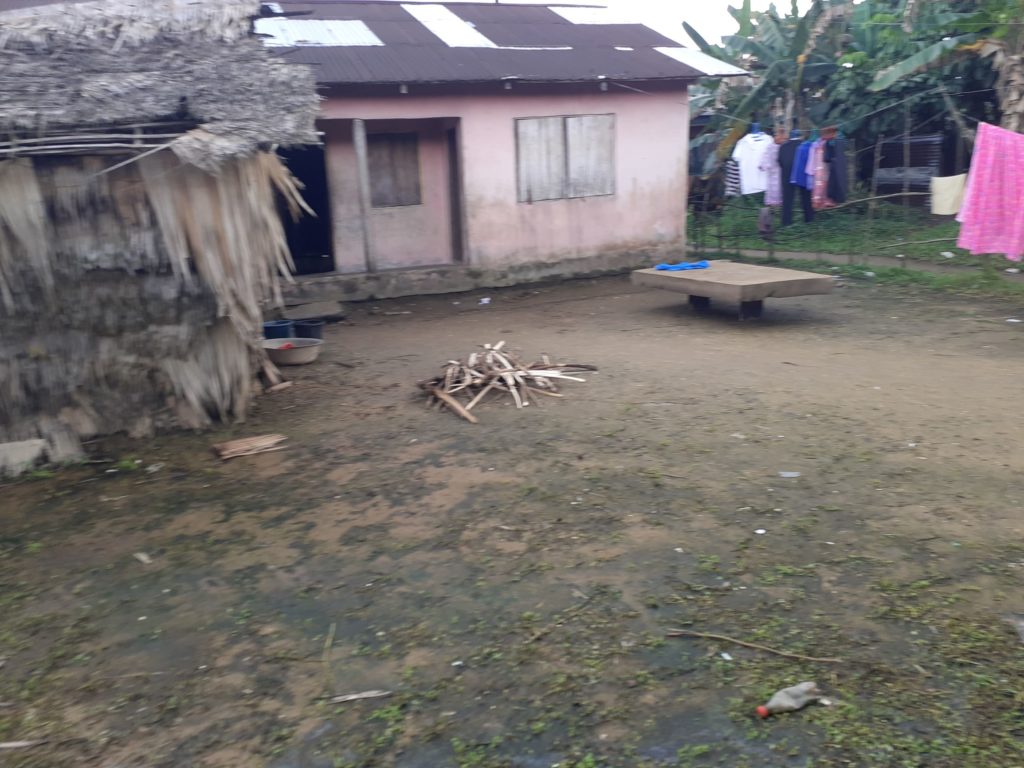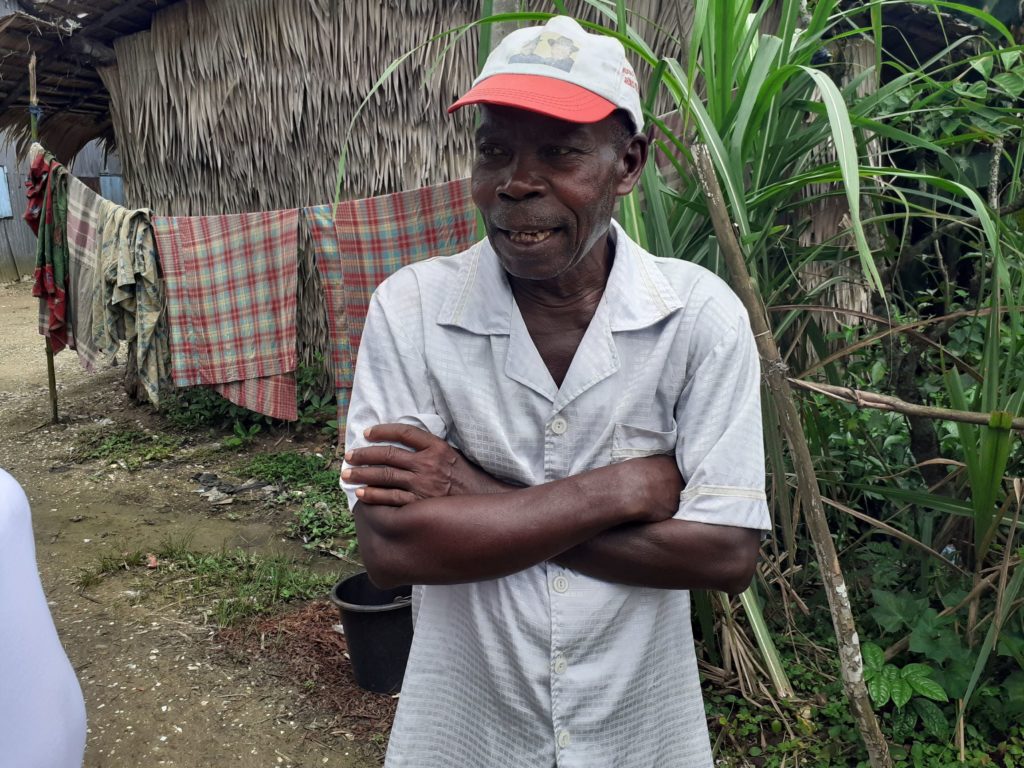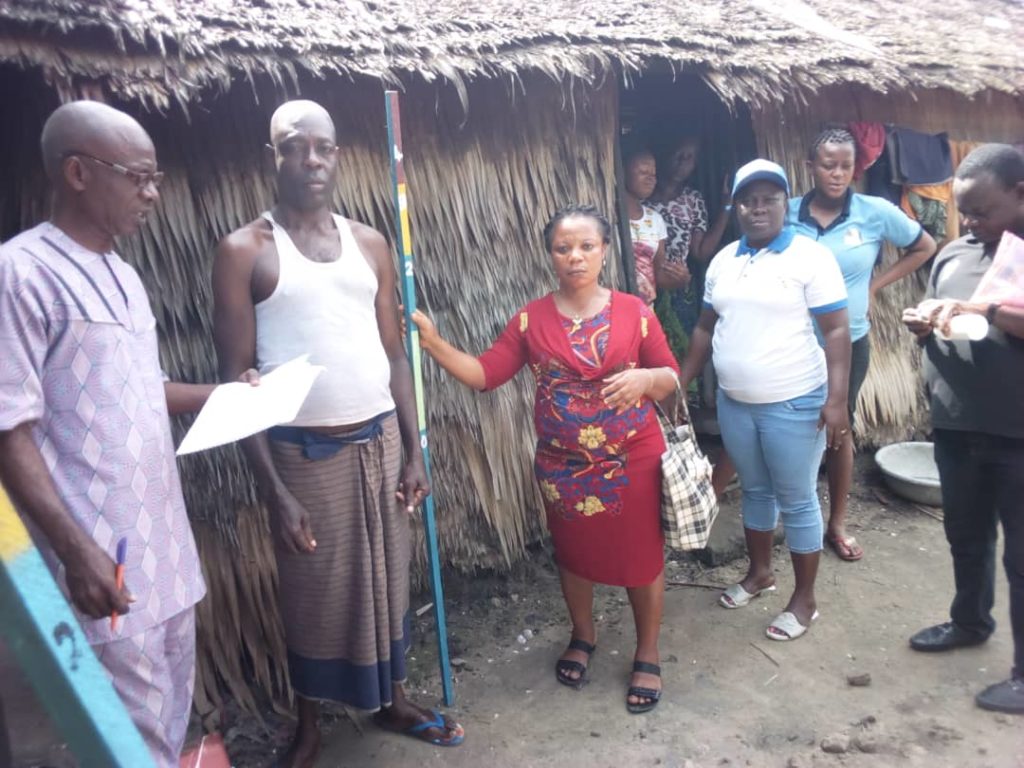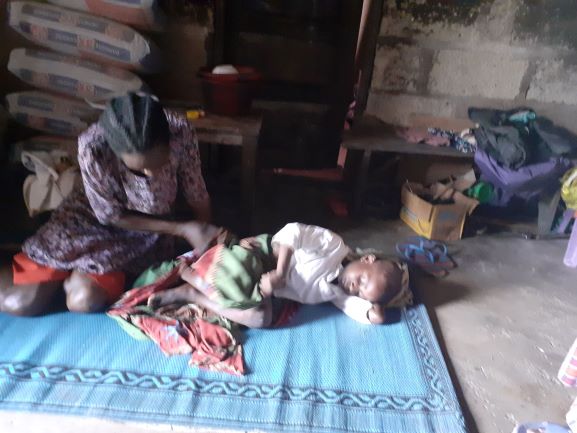By Ndidichukwu Odoh
4-year old Egbe Moyem has missed school for two days due to diahorrhea. Egbe’s father, Moyem Gabriel, had Typhoid a week before his son became ill, he was worried that he was spending much money for treatment of diseases and they recur frequently.
Egbe’s father was unable to pay the hospital bills which kept increasing. The family of seven treats one family member every week of one disease or another. When asked where the family toilet is located, Egbe’s father said the family uses a community toilet because it has been difficult and expensive for him to construct a toilet for his family.
“It is difficult to construct a toilet, we use the community toilet, that is where the children and my wife also use every day, but I don’t understand why my family falls sick all the time” said Egbe’s father.
In another household, 13 years Isotu Irele, was brought back home having spent three days in Egwede Community Primary Health Center where he was treated for Typhoid and diarrhea. His mother had to bring him home to complete the drugs and save cost at the health center.

When asked the source of water given to Isotu, his mother, Nnem Irele said, “the family drinks from the Community River”
Egbe and Isotu are children living in Egwede community of Andoni Local government of Rivers State. In their community, no household has a toilet, a community toilet serves over 300 people who are residents in the small community.
The excreta from the community toilet is disposed into the river which serves as the only source of drinking, cooking and washing for all.
Open Defecation in Egwede community is high and contributes to the high disease prevalence affecting children, pregnant mothers and the elderly. Despite the poor financial status of the residents of Egwede community, health care is out-of-pocket and expensive. This has had huge financial implication on the families’ welfare.

“I will like to construct toilet for my family, but at the moment I have to buy drugs” said Isotu’s mother.
The poor WASH situation in Egwede has also made some Negelected Tropical Diseases (NTDs) like Lymphatic fileriasis popularly known as Elephantiasis endemic.
The United Nations Children’s Fund (UNICEF) in 2018 commenced Mass Administration of Medicines to prevent NTDs and improve WASH in Andoni Local governemnt of Rivers State.

UNICEF in collaboration with Rivers State Ministry of Health in the first phase of MAM targeted 232,703 population from age five and above, so far, 84% of the targeted population covering 195,480 people received Alebendazole and Mectizan to prevent Elephantiasis and River blindness in Andoni. While the communities are sensitized on how to prevent some of the endemic tropical diseases, promoting safe , Sanitation and Hygiene behaviours is another intervention that should be combined with MAM exercise in communities to eliminate open defecation in the areas.

